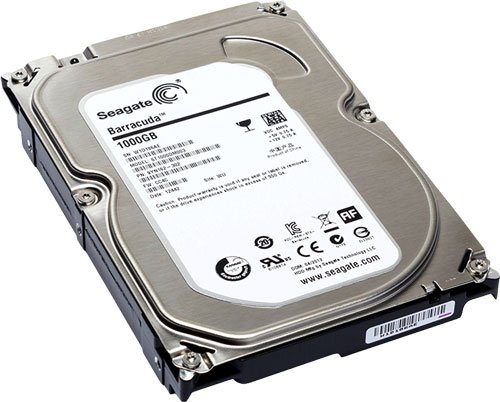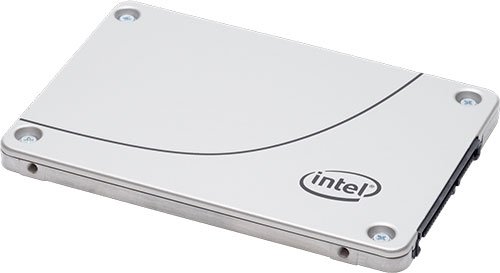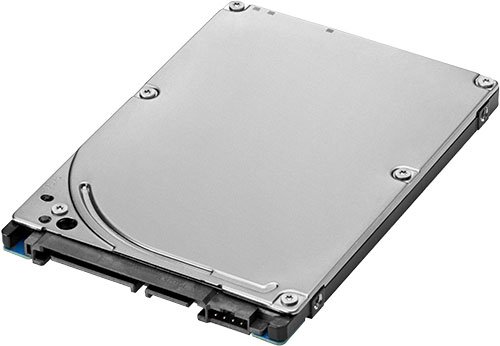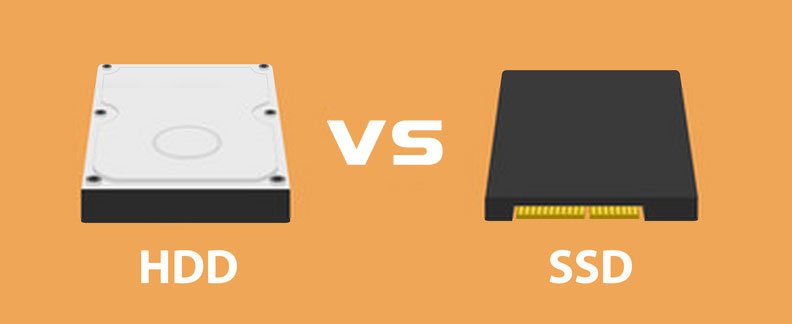Are you confused about choosing the best computer drive that can increase the performance of your computer? If you are using a hard drive, then your computer device may work slowly, but you can enhance its efficiency by using solid-state drives, and hybrid drives or SSHD.
All these drives have different data storage rates regarding the working efficiency of your computer. Furthermore, there are several advantages and disadvantages to these drives. The comparison between storage medium SSHD VS HDD will clear all your doubts regarding performance and efficiency.
HDD – Hard Disk Drive

The traditional hard drive used to store data inexpensively is HDD (Hard disk drive). This vital component of computers was introduced very early in 1956. It is the default data storage device on all computers and laptops. Its data storage capacity varies according to the computer device model which you are using.
HDD stores all data in random access manners as it is not using any sequential orders to store data. It can quickly write and retain all digital information. The hard drive uses magnetic storage to fetch information whenever it is needed.
The size of hard disks also varies according to their storage capacity. Its size for a laptop is 2.5 inches and for a PC is 3.5 inches. It can store a massive amount of data from 500 GB to 1 TB.
SSD – Solid State Drive

SSD uses the operating system to enhance its stability and performance. It has a larger capacity to store data than HDD. It works on the principle of a USB flash drive to store data. The SSD uses non-volatile and integrated circuits to store data in form of memory chips, but these chips cannot be moved.
This is the most advanced storage technology and is found in new devices. As HDD has moving parts, the SSD uses NAND memory and has a microchip for storage. This drive surprisingly increased the performance of new laptops and computers. In SSD, there is no chance of overwriting data.
In 1987 its prototype was introduced, but a fully functional Solid State drive was introduced in 1991. The storage device of SSD comprises tiny electric cells that have improved its storage capacity and shortened the time to receive & send data.
Solid State drive size varies as it comes in different sizes, like 1.8 inches, 2.5 inches, and 3.5 inches. Storage capacity also varies regarding the size of the drive.
SSHD – Solid State Hybrid Drive

The SSHD is s fast cache hybrid of SSD and HDD. It is a mixture of both worlds with a larger storage capacity. Basically, an SSHD is the combination of both storage devices with more prior configurations. It is a single device that indicates the types of data and stores it in SSD and HDD.
SSHD is the ultimate solution to all the problems regarding data storage. It works on the principle of both hard drives and solid-state drives. It is established to provide a storage capacity of SSD and the working efficiency of HDD.
SSHD contains the high capacity of HDD and NAND flash memory of SSD. All these features make it more reliable and advanced technology to store data. It does not require any software to decide whether to store the data in SSD or HDD.
In 2007, Tech companies introduced the first hybrid type of drive. But it was in 2010 when they were able to launch the first hybrid that can hold both worlds of the drive. The latest technology of SSHD is not much expensive and can be easily accessible.
HDD vs SSD

When it comes to choosing the right storage for your computer you have two main options: a hard disk drive (HDD) or a solid-state drive (SSD). While both options have their pros and cons it’s important to understand the differences between them so you can make an informed decision.
HDD Pros and Cons
Pros
- Large storage capacity: HDDs are available in capacities ranging from a few gigabytes to several terabytes making them a great option for users who need a lot of storage space.
- Affordable: Compared to SSDs HDDs are relatively cheap making them a great option for users on a budget.
- Widely compatible: HDDs have been around for a long time and are compatible with most computers making them an easy choice for users who don’t want to worry about compatibility issues.
Cons
- Slow performance: HDDs are slower than SSDs meaning that it can take longer for your computer to start up launch apps and access files.
- Noisy: HDDs can be noisy which can be annoying for some users.
- Fragile: HDDs are vulnerable to physical damage and can be easily damaged if dropped or bumped.
SSD Pros and Cons
Pros
- Fast performance: SSDs are much faster than HDDs which means that your computer will start up faster launch apps faster and access files faster.
- Quiet: SSDs are silent which is great for users who don’t like the noise of spinning disks.
- Durable: SSDs have no moving parts which make them less vulnerable to physical damage and more durable than HDDs.
Cons
- Higher cost: SSDs are more expensive than HDDs which can be a concern for users on a budget.
- Limited storage capacity: While SSDs are available in capacities up to several terabytes they are still more expensive per gigabyte than HDDs.
- Compatibility issues: Some older computers may not be compatible with SSDs so it’s important to check your computer’s specifications before buying one.
Which lasts longer HDD or SSD?
SSD typically lasts longer than HDD. This is because SSDs have no moving parts which reduces the risk of mechanical failure. It’s important to note that the lifespan of an SSD or HDD can also be influenced by other factors such as the usage patterns, operating conditions, and quality of the drive.
Data Transfer in HDD VS SSD
HDDs typically have sequential read and write speeds of around 100 MB/s to 200 MB/s. SSD range from 500 MB/s to over 7,000 MB/s for high-end drives. While The transfer rate difference can be several times faster for SSD and in some cases over ten times faster.
Can I replace HDD with SSD?
Yes, you can replace an HDD with an SSD in most cases. Replacing an HDD with an SSD is a common upgrade that can significantly improve the performance and overall responsiveness of a computer.
SSHD VS HDD
The simplest way to decide the best storage drive is to elaborate on the main differences between these drives. The following are the main key differences between SSHD and HDD. The SSHD VS HDD comparison tells us about the basic functionality of the drives. Now you have an idea about HDD, SSD, and SSHD. I have discussed the following main points regarding hybrid drives and hard drives.
Speed
The SSHD comes with an incredibly larger storage capacity and enhanced speed. The speed of SSHD to store data is ten times faster than HDD. The higher latency of HDD supports only fever devices, while the lower latency of SSHD can easily support more devices. The IOPs (Input and Output operation per second) also vary.
Vibrations
The rotating hard disk drive of HDD consumes more electricity than the non-rotating flash memory of SSHD. And the SSHD doesn’t produce any noise. The moving parts of HDD may be damaged during rotation, and cannot withstand vibrations. But SSHD can handle vibrations up to 2000 Hz.
Performance
The performance of HDD may be affected due to fragmentations. But in SSHD, there is no impact of fragmentation on the performance. The main components of the HDD are enclosed in a metal case. The platter holds the motor, which is to be driven. While in SSHD, there is only a sticky flash memory that is more reliable.
Data Transfer in SSHD VS HDD
In HDD data storage can take time due to sequential orders because the hard drive has to find an appropriate point to store data. But in SSHD, there is random access manner of SSD. It can store data within no time. There is no delay regarding head motion and no mechanical restrictions to performance.
Which one is the Best?
It all depends upon the device you are using to store data like PC and Laptops use different drives.
For PC
Most PC devices use traditional HDD rather than SSHD or SSD. You can install some additional files in SSD to increase the performance and basic functionality. But some newer PCs have SSD on smaller capacity. However, the SSHD is the all-time best; rather, you are using a PC or Laptop. Because in SSHD, there is no need to add programming files to store music and photos.
For Laptop
The decision about whether to choose SSD or SSHD is tricky. Because the Laptops only have a single room for the drive, we have to choose between SSHD, HDD, and SSD. The SSHD gives massive storage capacity, while SSD gives excellent performance. But the wise choice is SSHD it can easily handle both performance and space.
Conclusion
The choice to use a drive completely depends upon whether you have a PC or Laptop. We have cleared all the differences between HDD VS SSHD. If HDD is cheaper then SSHD is faster and more durable. SSHD uses less energy to store a large amount of data than HDD. The highest capacity to store data for SSHD is 4TB, and HDD is 10TB.
Let us know which one is the best and most affordable for you.

